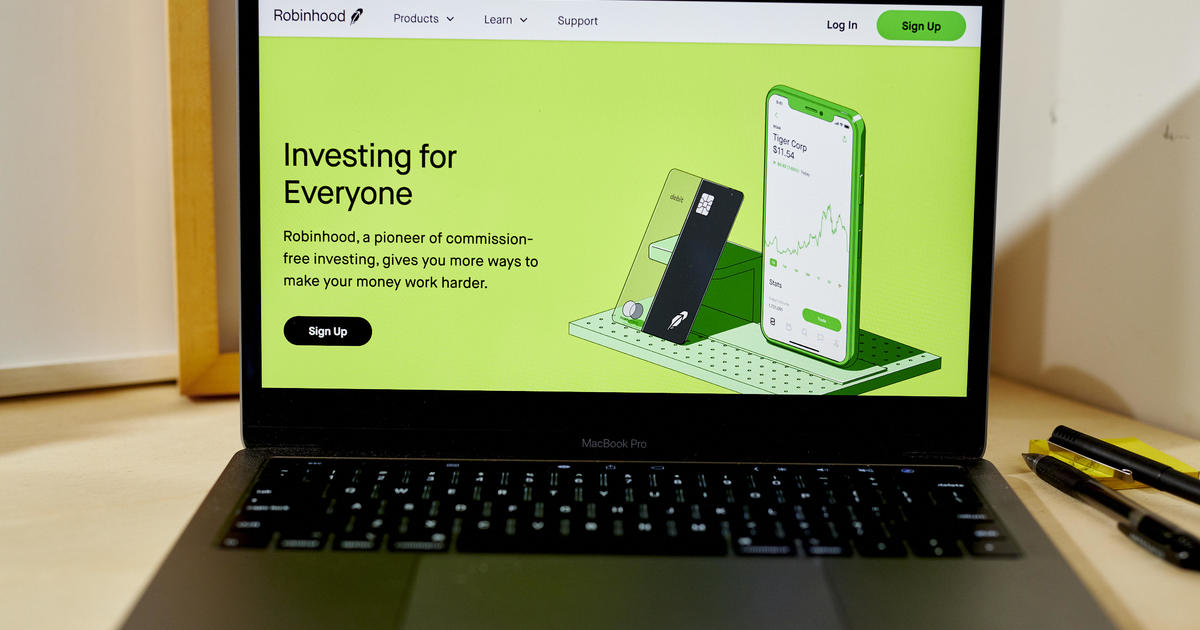
Robinhood Financial has been fined $65 million for misleading its stock market customers about how the company makes its revenue from their trades, the Securities and Exchange Commission said Thursday. The SEC fine comes one day after regulators in Massachusetts filed a lawsuit against Robinhood for allegedly targeting young, inexperienced investors with flashy gimmicks on its app that treat stock investing like a game.
Federal officials said that between 2015 and 2018 the company only partially explained on its online FAQ page how it makes money, omitting details about its largest revenue source — trades. Robinhood takes a user’s stock order and sells it to a larger trading firm that executes the trade, a process known as “payment for order flow,” the SEC order states.
Robinhood made no mention of payment for order flow rates, federal regulators said, at a time when the company was rapidly growing. While Robinhood markets its services as “commission free,” the SEC claims that customers in reality received inferior trade prices that “in aggregate deprived customers of $34.1 million,” despite any savings they received from paying zero in commissions.
“Robinhood provided misleading information to customers about the true costs of choosing to trade with the firm,” SEC Enforcement Division director Stephanie Avakian said in a statement.
Robinhood is now “fully transparent in our communications with customers about our current revenue streams” a company spokesperson said in a statement. The fine stems from “historical practices that do not reflect Robinhood today,” chief legal officer Dan Gallagher said in a statement.
The multimillion-dollar fine marks the second action Robinhood has had this week with government regulators.
On Wednesday, the Massachusetts Securities Division said in its lawsuit that while Robinhood markets itself as millennials’ gateway to the stock market, the company uses “gaming strategies to manipulate customers” to trade more in order to boost its fees.
“Colorful confetti”
One example from the suit: To further coax customers on its platform into trading, Robinhood rewards users “with colorful confetti raining down their screens after executing trades,” according to court documents. These and other tactics are Robinhood’s way of turning serious investing into a “game,” Massachusetts Secretary of the Commonwealth William Galvin said in a statement. The alleged tactic is “not only unethical, but also falls far short of the standards we require in Massachusetts,” he said.
Robinhood said it disagrees with what Massachusetts alleged and intends to fight state officials in court.
“Millions of people have made their first investments through Robinhood, and we remain continuously focused on serving them,” a Robinhood spokesperson told CBS MoneyWatch.
The company lets users transfer money from their bank account to a Robinhood account and then start buying and selling stocks for free. The app launched in 2013 and now has more than 13 million users. That includes nearly 500,000 users in Massachusetts with combined assets of $1.6 billion, court documents state.
Massachusetts also mentioned the payment for order flow system in its complaint. State regulators argued that the more trades Robinhood users execute, the more money the company receives from brokerages.
State regulators allege that Robinhood’s tactics resulted in hundreds of users making thousands of trades. “As one example, Robinhood allowed a customer with no investment experience to make more than 12,700 trades in just over six months,” the lawsuit claims.
Galvin is asking a state court to levy an undisclosed amount of fines on Robinhood. Regulators also want a judge to order Robinhood to find an independent consultant to evaluate the app and company policies.
String of negative publicity
The Massachusetts lawsuit follows a rash of negative publicity lately for Robinhood. Last year, a glitch in the company’s system allowed users to borrow an unlimited amount of money for trading. Massachusetts regulators also pointed to major outages the app experienced earlier this year.
Robinhood’s platform crashed in March, temporarily preventing users from accessing their funds. The outage occurred on the same day the Dow Jones Industrial Average notched a one-day historic gain of roughly 1,290 points. Federal regulators are now investigating why the outage happened, Bloomberg reported.
In June, a Robinhood user from Illinois died by suicide after his account erroneously showed a negative $730,000. In October, an undisclosed number of accounts were hacked and users complained they couldn’t reach Robinhood customer service to get their issues fixed.

